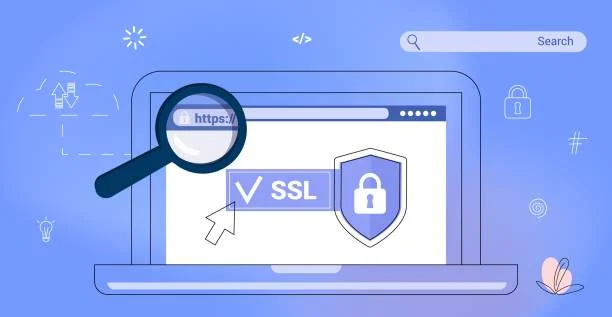In today’s online-first world, cyber threats are everywhere. From data breaches to phishing attacks, users are increasingly concerned about the safety of their personal information. If you’re a website owner, earning the trust of your visitors starts with securing your website—and that’s where SSL certs come in.
SSL certs (Secure Socket Layer certificates)—also called TLS certificates—establish encrypted connections between a website and its visitors. This encryption ensures that sensitive data like login credentials, payment details, and personal information cannot be stolen by hackers.
Without SSL certs, your site risks being flagged by browsers as “Not Secure,” which can instantly scare away potential customers. In this guide, we’ll cover everything you need to know about SSL certs, including their importance, types, cost, and how to get the right one for your website.
What Are SSL Certs?
SSL certs are digital certificates issued by trusted organizations called Certificate Authorities (CAs). They confirm the authenticity of a website and enable encrypted communication between a browser and a server.
Once installed, an SSL cert changes your website’s URL from HTTP to HTTPS, displaying a padlock icon in the browser bar. This is a visible indicator to visitors that your site is safe to use.
Stick around and explore more articles that might catch your interest!
How Do SSL Certs Work?
The process of SSL certs in action involves three main steps:
- Browser Request – A user’s browser requests a secure connection to your site.
- Certificate Verification – Your server provides the SSL cert, which the browser checks against trusted authorities.
- Encrypted Connection – Once verified, all data transmitted between the user and your site is encrypted.
This prevents hackers from intercepting private data through attacks like “man-in-the-middle.”
Why Are SSL Certs Important?
SSL certs are not just technical add-ons; they’re essential for modern websites. Here’s why:
- �� Protect Sensitive Data – Encrypts passwords, credit card numbers, and personal details.
- �� Builds Trust – The padlock icon reassures users that your site is safe.
- �� Improves SEO – Google favors HTTPS websites in its search rankings.
- �� Enables Online Payments – Required for PCI DSS compliance in e-commerce.
- �� Prevents Browser Warnings – Avoids “Not Secure” alerts that deter visitors.
- ✅ Meets Regulations – Helps comply with data protection laws like GDPR and HIPAA.
Types of SSL Certs
Different websites have different security needs. SSL certs’s come in several types:
1. Domain Validated (DV) SSL Certs
- Basic validation—proves you own the domain.
- Quick issuance (minutes to hours).
- Ideal for blogs, personal sites, and small businesses.
2. Organization Validated (OV) SSL Certs
- Verifies domain and organization identity.
- Adds more trust by confirming business legitimacy.
- Best for companies and professional websites.
3. Extended Validation (EV) SSL Certs
- Highest level of verification.
- Displays company name in browser address bar.
- Ideal for banks, e-commerce stores, and enterprises.
4. Wildcard SSL Certs
- Secures one domain and all its subdomains.
- Example: www.example.com, shop.example.com, blog.example.com.
- Great for businesses running multiple services under one domain.
5. Multi-Domain SSL Certs (SAN Certificates)
- Protects multiple domains under one certificate.
- Cost-effective for businesses managing different websites.
Cost of SSL Certs
The cost of SSL certs varies depending on validation level, features, and provider:
- DV SSL Certs‘s: $10 – $70/year
- OV SSL Certs‘s: $50 – $200/year
- EV SSL Certs‘s: $100 – $500/year
- Wildcard SSL Certs‘s: $100 – $400/year
- Multi-Domain SSL Certs‘s: $80 – $300/year
�� Tip: Some hosting providers include free DV SSL certs’s (e.g., Let’s Encrypt). While free options are useful, they lack warranties and extended validation, which are important for businesses.
Benefits of Installing SSL Certs
- Data Security – Strong 256-bit encryption protects customer data.
- Customer Trust – The padlock icon and HTTPS reassure visitors.
- Higher Conversion Rates – Customers are more likely to complete purchases on secure websites.
- SEO Ranking Boost – Google prioritizes HTTPS-enabled websites.
- Brand Reputation – A secure site reflects professionalism and reliability.
- Legal Compliance – Meets global cybersecurity standards.
How to Get SSL Certs for Your Website
Follow these steps to purchase and install SSL certs’s:
- Choose a Trusted Certificate Authority (CA)
- Popular providers include DigiCert, Comodo (Sectigo), GlobalSign, GeoTrust, and RapidSSL.
- Select the Right Certificate Type
- DV for personal sites
- OV for businesses
- EV for e-commerce and financial institutions
- Generate a CSR (Certificate Signing Request)
- From your hosting control panel or server.
- Complete Validation
- DV: domain verification
- OV/EV: business documentation required
- Install the SSL Cert
- Your hosting provider or IT team can install it.
- Redirect to HTTPS
- Ensure all pages use secure connections.
Common Mistakes to Avoid with SSL Certs
- ❌ Forgetting to renew SSL certs’s before expiration.
- ❌ Choosing a free SSL for high-security websites.
- ❌ Not securing all subdomains or multiple domains.
- ❌ Ignoring HTTPS redirection (leads to “mixed content” issues).
- ❌ Buying from untrusted CAs with poor support.
FAQs About SSL Certs
Q1: Do all websites need SSL certs‘s?
Yes. Even blogs and informational sites need SSL certs’s to build trust and avoid browser warnings.
Q2: Can I get free SSL certs’s?
Yes, from Let’s Encrypt and Cloudflare. But free certs only offer basic DV validation without warranties.
Q3: How long does it take to issue SSL certs‘s?
- DV: Minutes
- OV: 1–3 days
- EV: 3–7 days
Q4: Do SSL certs‘s slow down websites?
No. With modern servers, SSL encryption has negligible impact on speed.
Q5: How can I check if a website has SSL certs’s?
Look for HTTPS in the address bar and a padlock icon.
For more helpful blog posts like this one, visit the rest of our site, YearlyMagazine.
Conclusion
In the digital age, SSL cert‘s are essential for every website. They secure communications, build trust, improve SEO, and safeguard user data. Whether you’re running a personal blog, small business site, or large e-commerce platform, having the right SSL cert ensures both compliance and customer confidence.
With options ranging from DV certs for quick security to EV certs for maximum trust, there’s a solution for every need and budget. Remember: online trust is priceless—and SSL certs’s are the foundation of it.
Want to learn more? Our other posts are just a click away!






